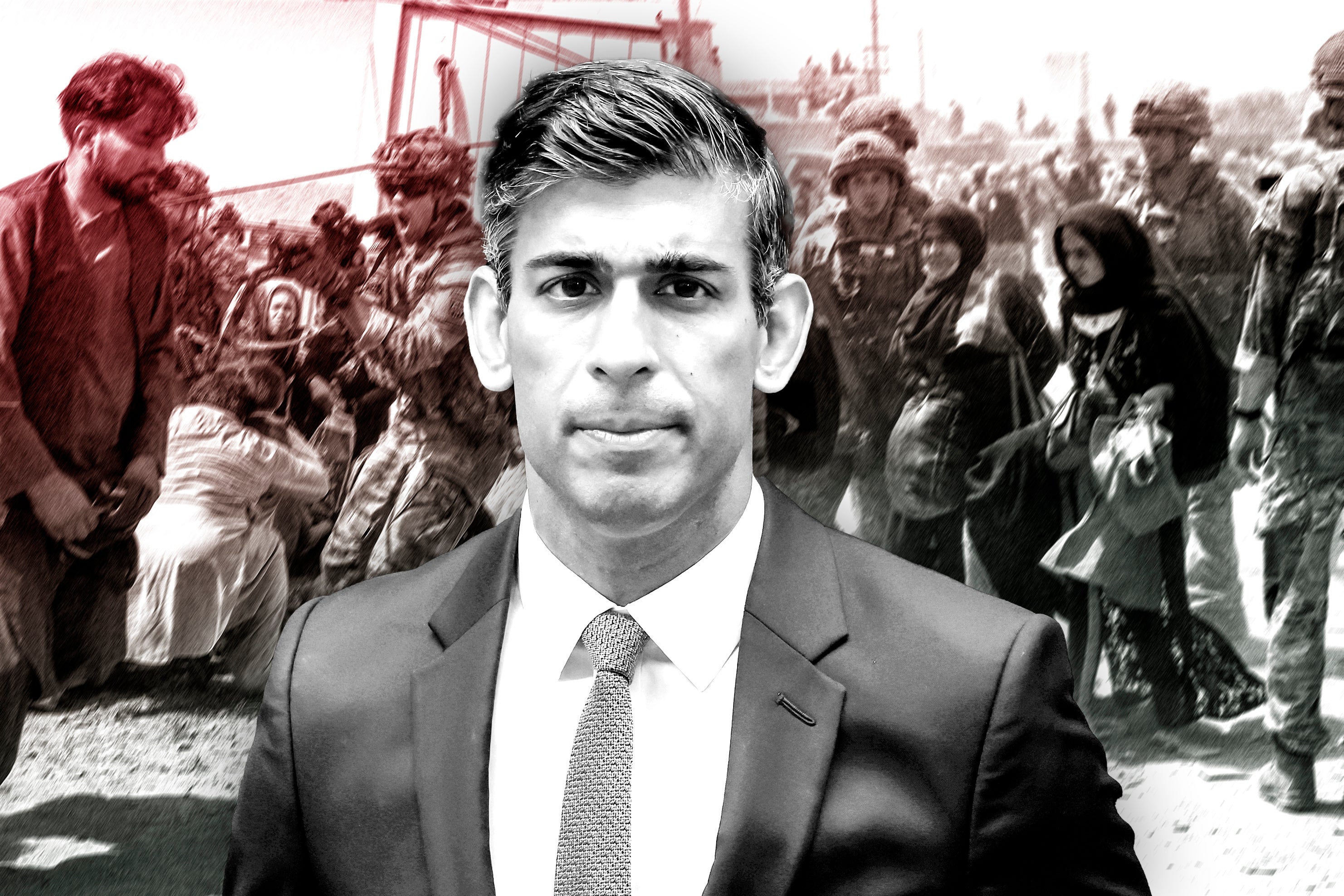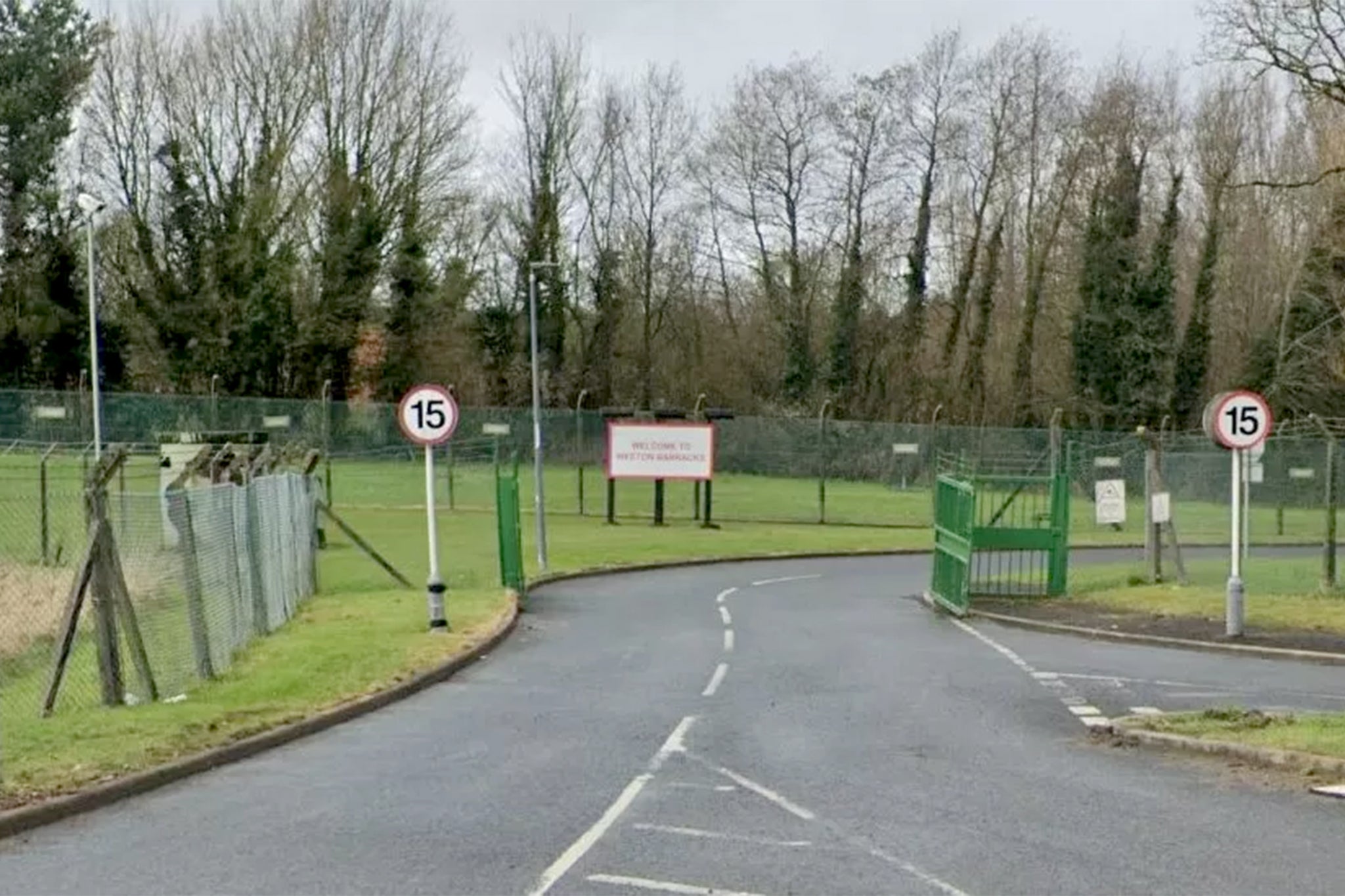Hundreds of Afghans evacuated from Pakistan ‘dumped’ in military bases as UK scrambles to find them homes
Exclusive: Some refugees said it was hard to leave bases and that they had been given little help to claim benefits or find a GP
Your support helps us to tell the story
From reproductive rights to climate change to Big Tech, The Independent is on the ground when the story is developing. Whether it's investigating the financials of Elon Musk's pro-Trump PAC or producing our latest documentary, 'The A Word', which shines a light on the American women fighting for reproductive rights, we know how important it is to parse out the facts from the messaging.
At such a critical moment in US history, we need reporters on the ground. Your donation allows us to keep sending journalists to speak to both sides of the story.
The Independent is trusted by Americans across the entire political spectrum. And unlike many other quality news outlets, we choose not to lock Americans out of our reporting and analysis with paywalls. We believe quality journalism should be available to everyone, paid for by those who can afford it.
Your support makes all the difference.Hundreds of Afghan refugees have been “dumped” in UK military bases while ministers figure out where to house them, in a move condemned as the government’s “latest betrayal” of asylum seekers.
The Ministry of Defence (MoD) is scrambling to evacuate 3,000 people with links to the British armed forces who have been languishing in hotels in Pakistan – where some have waited years to be brought to safety – after Islamabad announced a crackdown on immigrants without visas.
While some relocated families have been moved into forces accommodation, hundreds have been placed behind the constraints of 7ft-high barbed wire fences in military barracks in Loughborough, Gloucestershire, Blackpool and Staffordshire.
Some say they are unable to leave and have been given little in the way of information about starting their new lives in Britain, such as how to claim benefits or find a GP.
The revelation comes after The Independent revealed the scandal of abandoned Afghans who were promised safe haven in the UK, and as the government is under fire for its treatment of migrants following the failure of its plan to deport them to Rwanda.
General Sir John McColl, a former deputy supreme allied commander in Europe, praised the MoD for bringing people to Britain but warned that the government had questions to answer on the help being given to these families, while shadow armed forces minister Luke Pollard said Afghans would face “even more uncertainty”.
One refugee on a base in Garats Hay said they had been forced to rely on help from a charity volunteer to call 111 to obtain antibiotics when they were struggling to access medical help.

The refugee was brought to the UK with his family under the MoD’s Afghan relocations and assistance policy (Arap) because his father worked alongside British forces in Camp Bastion in Helmand province as part of his service in the Afghan National Army.
He said of the military base where they are living: “There is no way to leave. No one can come in, and no one can leave the base. We’ve not been told anything about how long we’re going to be here, they just put us here for an unknown period of time. There’s nothing to do here. We are just staring at the walls right now.”
He said refugees had been told not to leave and that they had no money to pay for transport even if they could.
The relocation plan, dubbed Operation Lazurite – named after the blue mineral found in the precious stone lapis lazuli, which has been mined in Afghanistan for more than 6,500 years – has seen charter flights bring hundreds of Afghans to the UK since the end of October.
The rushed evacuations came after Rishi Sunak’s government was forced to relocate Afghan refugees from Pakistan in response to numerous legal challenges over the delay in transferring those who are eligible to come to the UK.
The operation is being run by the army’s regional command, based in Aldershot, with armed forces minister Johnny Mercer overseeing the relocation of refugees to suitable accommodation. Some families have been moved into homes owned by the UK armed forces, but Mr Sunak has not ruled out the use of hotels.
It is understood that MoD Garats Hay, a base in Loughborough usually used for military training and conferences, is being used as an initial holding facility, with families waiting weeks before they are moved to another base or more permanent armed forces accommodation.

While staying at Garats Hay, the refugees are unable to leave, and they cannot get council support to set up universal credit claims and register with the NHS until they are moved on.
Other Afghans have been moved to Swynnerton Camp, a 560-acre base in Staffordshire used for military training. Some have been placed at Weeton Barracks near Blackpool, in housing usually reserved for soldiers and their families, while Beachley Barracks in Gloucestershire is also being used. Afghans have been told they will be at the barracks for six weeks before they are found more permanent homes.
General McColl, who served in Afghanistan, said that while the MoD had made good progress in clearing the backlog of people stranded in Afghanistan and Pakistan, there were still questions over where they would live in the longer term.
“A lot of them are being moved into service family accommodation. The question then to be asked is what happens when that is full. That question hasn’t been answered yet. I would also like to know more about the Home Office’s role in funding councils to help them receive these families. What next, is the question,” he said.
Labour’s shadow armed forces minister Luke Pollard said: “The government failed to deal with the ballooning backlog of Arap applications, left Afghans in limbo in hotels, and repeatedly put them at risk from the Taliban. And now, Afghans are being moved to military bases to face even more uncertainty.
“Ministers must fix their failing Afghan schemes.”
Steve Smith, the CEO of refugee charity Care4Calais and a former army colonel, said the government had “let down Afghans who served alongside UK forces in Afghanistan”.
He added: “To dump the small number of Afghan veterans they have brought over from Pakistan in military barracks, segregated from their new community, is the latest betrayal from this government. These Afghan veterans and their families should be living in communities, starting their new life here in the UK with hope, not held in military barracks.”
General Sir Richard Dannatt, a former head of the army, said the MoD was working hard to find homes, adding: “A combination of putting them in MoD accommodation and local authority accommodation around the country is the right thing to do – not leaving them in hotels to languish for many months.”
A government spokesperson said: “The UK has made an ambitious and generous commitment to help at-risk people in Afghanistan and, so far, we have brought around 24,600 people to safety, including thousands of people eligible for our Afghan schemes. We continue to honour our commitments to bring eligible Afghans to the UK, with new arrivals going directly into settled accommodation where possible.”
A Ministry of Defence spokesperson said: “We are committed to providing the best possible care for eligible Afghan families upon arrival to the UK, which includes access to a 24-hour support network, deployed Medical Liaison Officers and interpreters. We are working closely across government to support their resettlement.”
Join our commenting forum
Join thought-provoking conversations, follow other Independent readers and see their replies
Comments